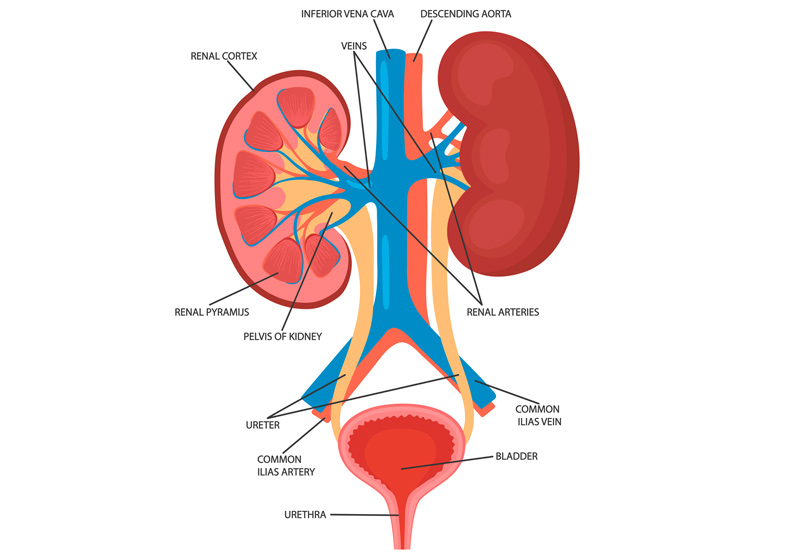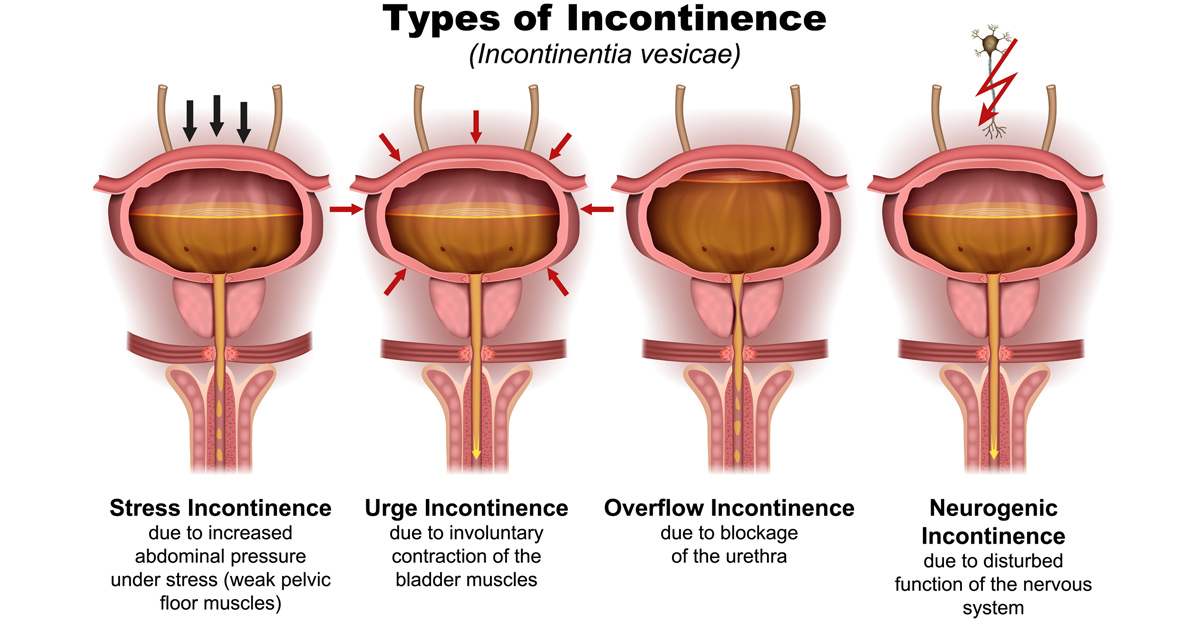

Stress urinary incontinence (SUI) occurs when sudden pressure on the bladder and urethra causes the sphincter muscles to briefly open and leak urine. Patients with mild SUI may experience leakage from sudden forceful activities like laughing, sneezing, coughing, or exercising. Severe cases of SUI may involve leakage from simple actions like standing up, bending over, and walking.
SUI is more common in women, than in men. One in three women age 60 leak urine occasionally, compared to one in two women age 65 and older.
How A Healthy Urinary System Functions
The kidneys filter waste and excess water from the blood to create urine. They also control electrolytes, fluid balance, pH, and blood pressure.
Urine flows from the kidneys through the ureters into the bladder, where it is stored until the bladder muscles contract. Urine exits the body through the urethra, which is a tube at the bottom of the bladder. Sphincter muscles keep the urethra closed and prevent urine from leaking out. Once the bladder contracts, the sphincter muscles relax and allow urine to exit the body.
The pelvic floor muscles and tissue form a sling that supports the bladder, rectum, and uterus.

Causes of SUI
SUI occurs when the pelvic floor has been stretched, weakened, or damaged through pregnancy, childbirth, chronic coughing, nerve injuries to the lower back, or pelvic surgery.
Risk Factors of SUI
The risk of developing SUI is increased by the following factors:
- Smoking
- Chronic coughing
- Being overweight
- Pregnancy and childbirth
- Nerve injuries to the lower back
- Being female
- Pelvic or prostate surgery
Diagnosing SUI
Patients should speak to their doctor about the symptoms they’re experiencing. During the initial consultation, the physician will need to know the following:
- Current symptoms, how they affect daily life, and frequency of incontinence
- Current prescription drugs, over-the-counter medicine, vitamins, and herbal supplements
- Past and current illnesses, injures, or surgeries
- Diet and fluid intake
- Pain and other symptoms like bloating or constipation
- Timing and severity of symptoms
If necessary, a primary care physician can refer the patient to a urologist or gynecologist for specialized treatment.
During a physical exam, the physician will check the patient’s abdomen, pelvic organs, and rectum.
The physician may ask the patient to squeeze their pelvic muscles and sphincter muscles to test their strength. The patient may be asked to make certain actions, such as coughing, stepping, and straining down to check for urine leakage.
Some patients may be encouraged to keep a bladder diary to track daily symptoms, fluid intake, frequency of urination, and frequency of incontinence. Patients will also need to write down what they were doing when they experienced leakage.
A one-hour or 24-hour pad test may be done to observe and evaluate leakage. The one-hour test is done in a doctor’s office to learn about leakage triggers, while a 24-hour test is done at home.
Other tests that may be done include:
- Urinalysis
- Bladder scan
- Cystoscopy
- Urodynamic studies
Treatment for SUI may include lifestyle changes, medical devices to manage SUI, and surgery.
